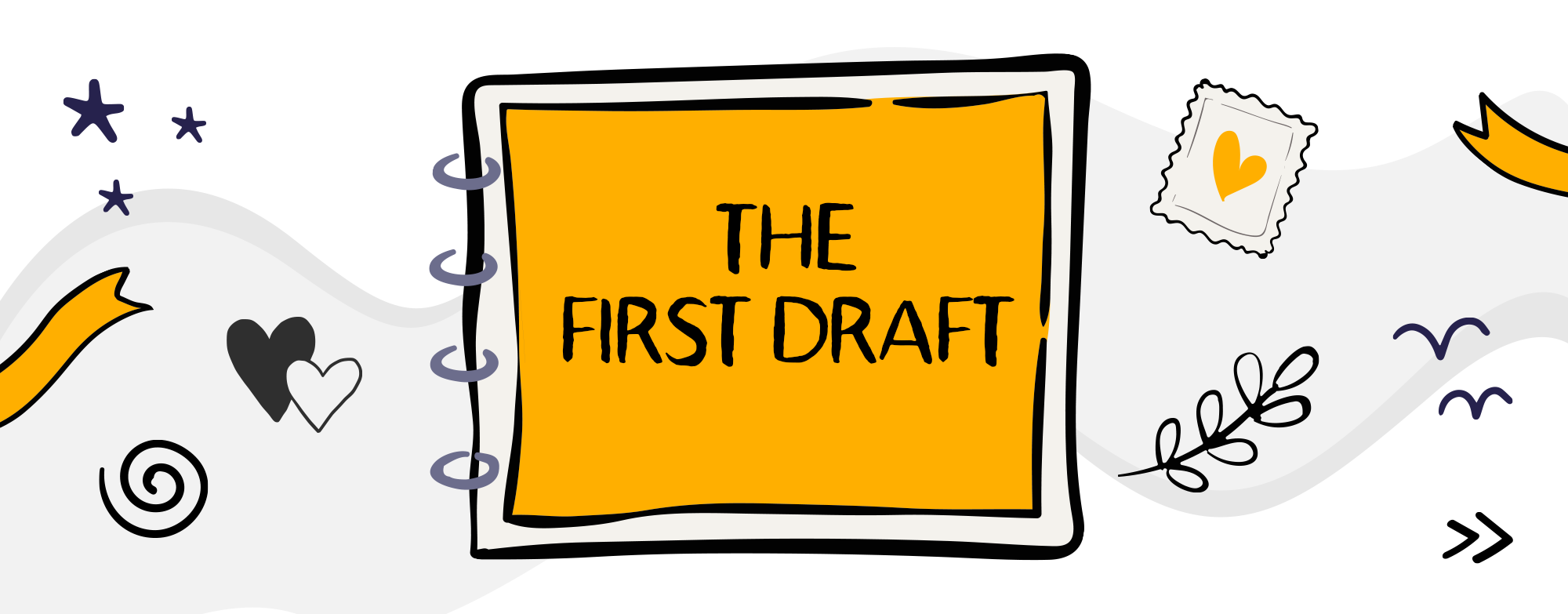Welcome to Part 3 of ‘The Dear Dory Creative Process’. You can read Part 1 here and Part 2 here.
When I first began writing, it was immediately obvious just how little I knew about the finer (and often the not-so-finer) points of the English language. My control of SPAG (spelling, punctuation and grammar) was appalling. It was also distracting me from getting words down on a page because my flow was constantly interrupted by green and red squiggles under words I’d misspelt.
That was a big lesson for me because I then understood that writing a book would be like layering a cake. The first draft is not the pretty, polished final product that sits on a shelf beckoning potential readers with its shiny cover and elegant prose. It is the raw material that a writer uses to create something that only later looks more ‘booklike’.
I knew that if I were to rewrite as I went, I would never finish the project – especially when you consider I had no experience to draw on either. So, the first thing I did (and this is something I will repeat for all my projects) was to turn off any sort of spellcheck functionality. It wasn’t of any value to me – not at that stage.
Getting words on a page then just became a commitment to showing up every day, no matter how busy I was (and I was busy), and committing to writing something – even if it was less than 50 words.
I would ensure I took a full hour for my lunch break at work, bring my laptop with me and sit somewhere quiet and email myself notes or the previous day’s entry. Emailing myself also served as security if I were somehow to lose the manuscript file (which I saved both on my laptop’s local drive and in my cloud platform).
I would keep two journals on my desk at work at all times. One was for work notes, and the other was my personal journal. It meant that if I had any ideas or thoughts while I was working, I could quickly write them down so I wouldn’t forget them, and then type them up later.
I was able to keep this practice up every day.
The exception to this was during the labour, as I needed to focus on my partner and the baby.
When my partner went into hospital, I was mindful of the fact that I had almost completed the first draft, the most dramatic part of this story was about to begin – and I needed to get it right on the page.
At the same time, I also needed to be there for my partner and do whatever she required of me – like buying her a mug so she could have a decent cup of tea in the hospital instead of the piece-of-shit pathetic plastic things that the hospital stocked.
I relied on my phone throughout the labour. I had a bullet list on my notes app and every time something happened during the labour, or I noticed something of interest, I would timestamp the entry and quickly write a note.
If you’re reading this and thinking about doing the same thing, then I encourage you to adopt a similar strategy. Obviously, everyone’s labour experiences will differ for both parents, but for me it was one huge, drama-filled episode, and there was no way I would have remembered all the details if I hadn’t written them down as they were happening.
When my partner was in labour, there were long periods of time when I was just sitting by her side not doing anything, so it was easy to keep jotting notes down. When she went in for the emergency C-section, I had a few minutes by myself in the corner of the room while the medical team prepared for the surgery. I used that time to quickly describe the room. It was a welcome distraction, as by that point I was an emotional mess – even though it wasn’t me on the operating table.
When she gave birth – I immediately had a new job to get to grips with, a job that instantly took top priority, even over my writing. It wasn’t until about ten days later that I got round to typing up my notes and finishing the first draft of Dear Dory. If I hadn’t taken notes while in hospital, the ending wouldn’t have been as good.
If I could impart any advice to aspiring writers, it is always to have a way of writing notes down, whether that be your phone or a journal (this is what I use) that you keep in your coat pocket at all times.
You never know what you will find or what will suddenly enter your mind, and you need to be ready to commit it to paper; otherwise, you risk forgetting it forever.
Note: this page uses affiliate links. I receive a small percentage of any sales that you purchase through some of my links at no added cost to you.
